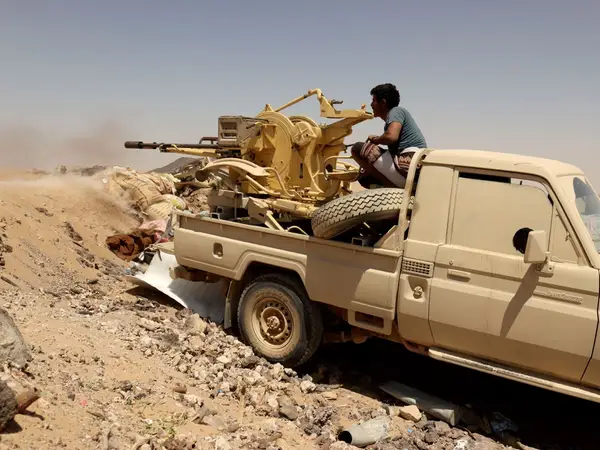Agreement to restore relations with Iran does not mean disputes have been resolved, Saudi Foreign Minister Prince Faisal bin Farhan bin Abdullah has said.
In an interview with London-based Asharq Al-Awsat, bin Farhan emphasized that the agreement announced March 10 in Beijing with Chinese mediation and apparent guarantees, shows a joint desire by Iran and Saudi Arabia to “resolve disputes through communication and dialogue.”
He underscored, however, “This does not mean that an agreement has been reached to resolve all pending disputes between them.”
The biggest dispute is the conflict in Yemen where the two countries have fought each other indirectly for 8 years. Iran has backed Houthi rebels who pushed the internationally recognized government out of the capital and proceeded to conquer territories beyond their ethnic-religious traditional domain.
As Saudi Arabia backed the anti-Houthi forces with direct military involvement, Houthis used Iranian missiles and drones to launch hundreds of attacks against targets inside Saudi territory.
Most analysts believe that Riyadh wants to end the Yemen conflict as it embarks on an ever-ambitious plan of economic development, which needs security.
Executive Director of The Washington Institute Robert Sadloff in a long series of tweets Sunday referred to the Saudi quest for fast economic growth, quoting a senior Saudi official who said growth “can be sidetracked through insecurity, whether from Houthi missiles or the threat of [Iranian] nuclear blackmail.”
The Saudi foreign minister in his interview emphasized the economic factor. “We, in the Kingdom, hope to open a new chapter with Iran and bolster cooperation that would consolidate security and stability and push forward development and prosperity, not just in both our countries, but the entire region.”
Former Iranian diplomat Javid Qorban-Ogli told Didban website in Tehran Monday that ending the Yemen conflict is the top Saudi objective. “Saudi Arabia is a conservative regime which tries to avoid headaches. It pursues an ambitious development plan, which needs security and stability in the region.”
He also listed Tehran’s reasons for resuming relations with Riyadh. “Iran, the other side in this agreement, is facing a serious economic crisis, social and political chaos and multiple other crises because of its wrong foreign policy.” The third actor in this deal is China, he said, adding that Beijing seeks “energy security.”
Iran’s foreign ministry spokesman Naser Kanaani Monday reiterated that the agreement with the Saudis is the result of nearly two years of talks in Baghdad and Oman, taken to a higher level in recent months by Chinese mediation. His remark shows that although the two sides could have reached an agreement without Beijing, one or both countries at some point decided to have China some sort of guarantor.
Sadloff also argued in his tweets that Riyadh to an extent lost confidence in the Biden administration for securing Iran’s containment. As Tehran expands it nuclear program getting closer to a nuclear threshold state and Washington maintains restrictions on arms sales to Riyadh, Saudi Arabia’s confidence in receiving American protection decreased.
“Resuming ties with Iran is a dramatic expression of this lack of confidence in US,” Sadloff said.
